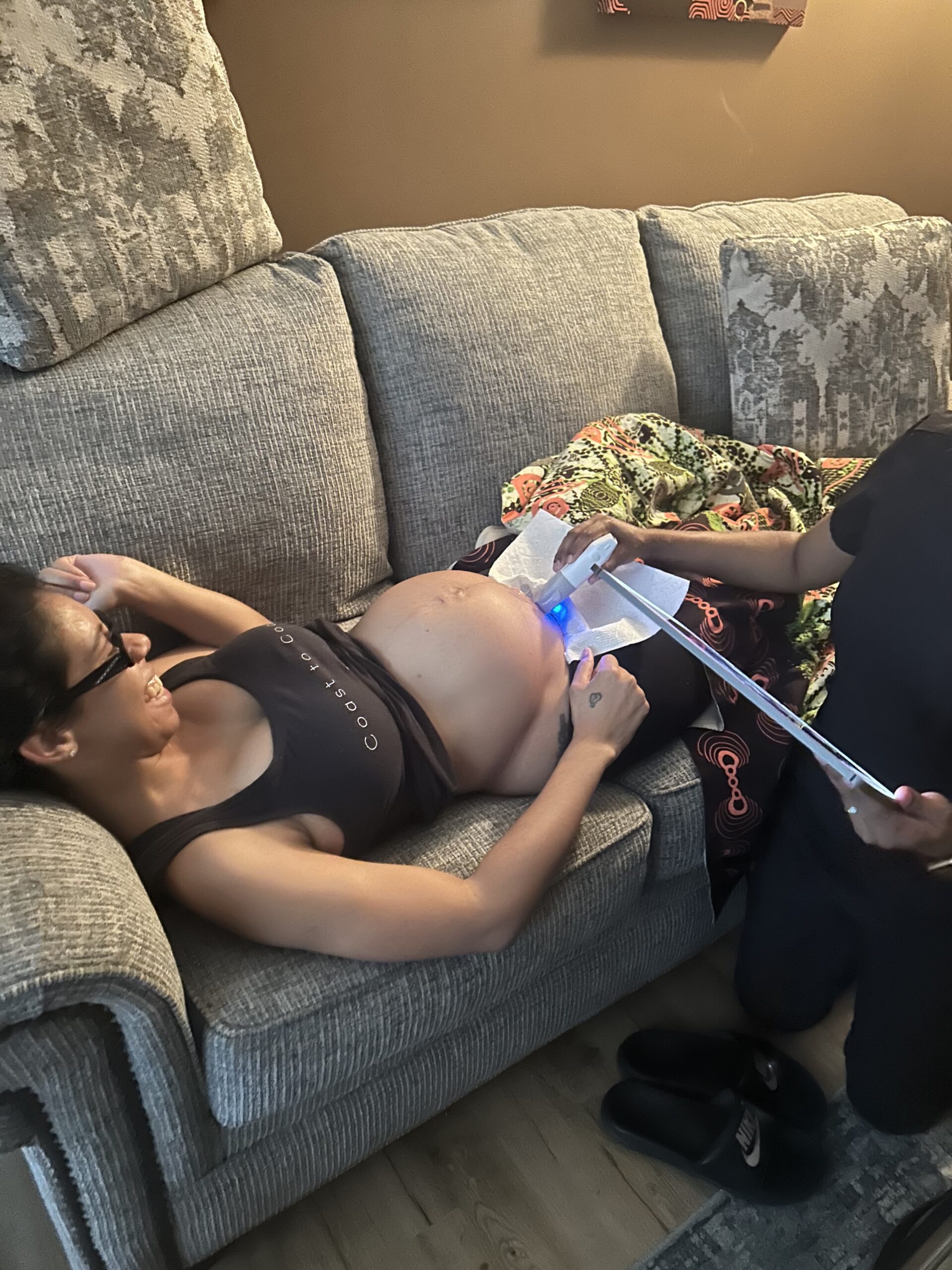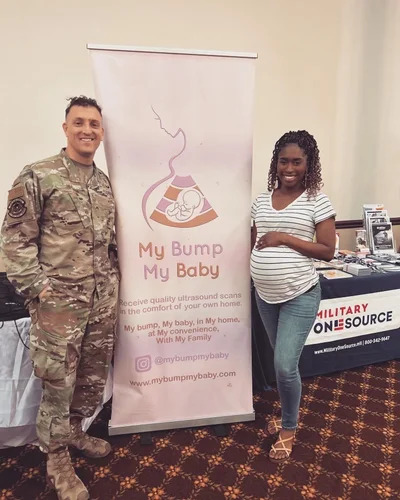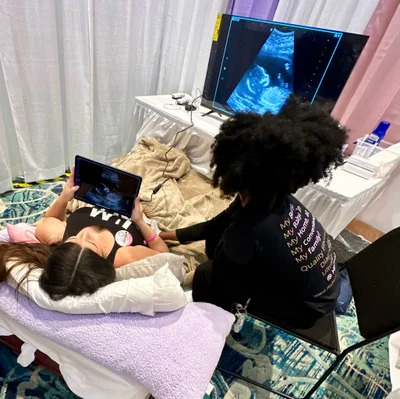
Help Us
Help Others


Quality Service
Our goal
The Motto
Professional Team
Ensure safe pregnancy imagery when you connect with My Bump My Baby
Donate to the cause
The My Bump My Baby My World Non-profit Foundation, was established in the US in June 2023. We are offering sneak peak elective reassurance sonograms in pregnancy, at home for FREE! Our service is eligible for Low income minority families or active military families! Starting efforts in NJ, New York metro area and ATL Georgia, January 2024, we aim to offer this service across the United States!
The Benefits of Ultrasounds to the Expectant Mothers We Serve
Pregnancy ultrasounds provide the following unique benefits. They:
- Reduce stress and improve fetal health outcomes by providing expectant parents reassurance that all is well with the pregnancy.
- Identify medical issues that cannot be detected through other means, such as a physical exam, allowing early intervention by a doctor or other healthcare provider.
- Facilitate parent and infant bonding and thus promote healthier infant development.
Reassurance
- Minority Low-income expectant mothers and expectant mothers with military-deployed partners are more likely to experience high levels of anxiety and stress during their pregnancy.
- Anxiety and stress during pregnancy are linked to preterm birth, low birth weight, and miscarriage.
- They can also adversely impact fetal neurodevelopment and lead to continued health and development issues during childhood.
-
- Some of the anxiety the expectant mothers we serve are likely to experience is specific to the pregnancy itself, including anxiety about the well-being of the fetus.
- Researchers have found that this pregnancy-related anxiety is a particularly potent maternal risk factor.
- Ultrasounds can provide expectant mothers reassurance that their baby is safe.
- Having this reassurance can improve health outcomes by decreasing anxiety in the expectant mother.
Detection of Medical Issues
There are important, basic assessments that can only be done through ultrasound. Those are as follows (the “Basic Assessments”):
Fetal heart rate Amniotic fluid volume In-utero bleeding Placental location Fetal position. Without an ultrasound to do the Basic Assessments, a serious medical issue could go undetected and the mother or fetus’s health or life could be at risk.
For example, an ultrasound in the third trimester can reduce the number of breech births significantly–by 70% according to a recent study–and save mothers and infants from death, trauma, and/or severe health complications.ix “Breech” is where the baby is positioned feet or bottom first–this could cause the baby to die or sustain a brain injury due to lack of oxygen.x If breech is not identified early enough, the mother will have to have an emergency C-section.xi A C-section is a major surgery with a long and painful recovery period.xii In addition, it can cause infection and severe bleeding in the mother and breathing or feeding difficulties in the infant.xiii
Our ultrasound technicians (USTs) will perform the Basic Assessments at each pregnancy ultrasound. If any of these measurements are out of normal range, we will advise the expectant mother to go to the hospital.
All findings, regardless of whether they are out of range, will be reported to the expectant mother’s health care provider.
In addition, prior to the ultrasound, the UST will ask the expectant mother these questions:
Have you had any bleeding?
Can you feel the baby moving (after 21 weeks)? Do you have any pain?
If the answers to these questions are concerning, the expectant mother will be directed to go to the hospital, and the ultrasound will not commence.
Fetal health issues are more likely to occur for low-income expectant mothersxiv and expectant mothers with a military-deployed partnerxv (in both cases connected in part with high levels of stress and/or anxiety as described earlier herein). Additional scans can not only provide reassurance but identify fetal health issues so that a healthcare provider can intervene with appropriate treatment.
Bonding
Ultrasounds can help both parents’ bond with the fetus and increase the well- being of the baby. Research has shown that seeing an image of the developing fetus intensifies parents’ attachment to the baby, leading to more positive parent- infant interactions and healthier infant development.
Access
United States
In the United States, most doctors will order a maximum of two ultrasounds, one during the first trimester and one during the second trimester,xvii even though, as described above, an ultrasound during the third trimester can significantly reduce risk to the fetus and the mother. Additional ultrasounds are usually not covered by insurance, so expectant parents would need to pay for them out of pocket at a cost that could be hundreds or thousands of dollars.
International
Expectant mothers we serve internationally will be residents of low and middle income countries. Expectant mothers in low and middle income countries often do not have access to any pregnancy ultrasounds, unless, perhaps, they can pay a price which the people we will serve will not be able to afford.
Selection Criteria
In the U.S., the majority of the people we serve will be low-income expectant mothers who have an income level that does or would qualify them for one or more government assistance programs, such as Medicaid, Food Stamps, Earned Income Tax Credit, Supplemental Security Income, housing assistance, TANF, or WIC or who are houseless. The people we serve do not have to be actual recipients of benefits from these programs; they just need to have an income level that would qualify them.
The other people we will serve in the U.S. will be expectant mothers who are separated from their deployed partners and may be experiencing high levels of anxiety and stress as a result. The military bases we will be partnering with will refer these people to us.
We plan to work with well-established international nonprofits health organizations, such as Doctors without Borders, UNICEF, and the Red Cross, to identify and connect with low-income expectant mothers in need of ultrasound services outside of the U.S.




501c3 Registered public charity